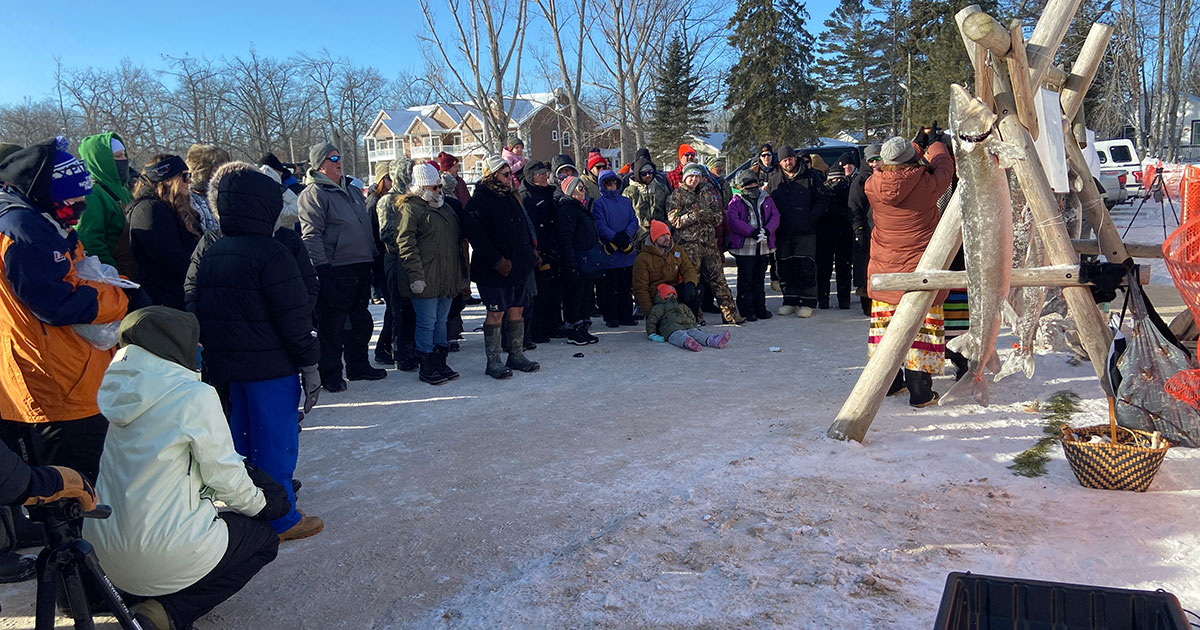
- Details
MDNR Report

This year’s sturgeon season on Black Lake (in Cheboygan and Presque Isle counties) ended at 8:48 a.m. Saturday, Feb. 7. The season, which included spearing and hook-and-line fishing, was scheduled to run Feb. 7-11, or until the harvest limit of six lake sturgeon had been reached – but just 48 minutes turned out to be enough time.
The Michigan DNR set the harvest limit for the season at six fish, though anglers were allocated a season quota of seven sturgeon by agreement with tribal governments. This limit was placed to accommodate the expected number of anglers and anticipate the possibility of near simultaneous harvest of more than one fish, as occurred in 2025.
There were 679 registered anglers this year. The harvested sturgeon ranged in size from 52.9 inches to 67.2 inches long and weighed 40.4 pounds to 79.4 pounds.
- The first fish was a 61.5-inch male that weighed 50 pounds.
- Fish number two was a 64.1-inch female that weighed 78.4 pounds.
- Fish three was a 52.9-inch male that weighed 46.6 pounds.
- Fish four was a 67.2-inch female that weighed 79.4 pounds.
- he fifth fish was a 58.1-inch sturgeon that weighed 40.4 pounds.
- The sixth fish was a 62.5-inch female that weighed 58.4 pounds.
Only one of the harvested fish had not been captured before by Michigan State University and the DNR during spring spawning runs in the Black River or during past surveys of Black Lake. The sex of the fifth fish, which was not previously tagged, will be determined using DNA from fin clips collected when the fish was registered.
Participating anglers were notified of the season closure in a variety of ways, including text alerts and ice shanty visits from DNR personnel. All methods were used to indicate the season’s end within minutes of the final fish being harvested. DNR law enforcement officials and other DNR personnel were embedded in the on-ice fishing communities and were able to quickly and safely report harvested fish, as well as to quickly contact all lake sturgeon anglers on the ice to close the season.
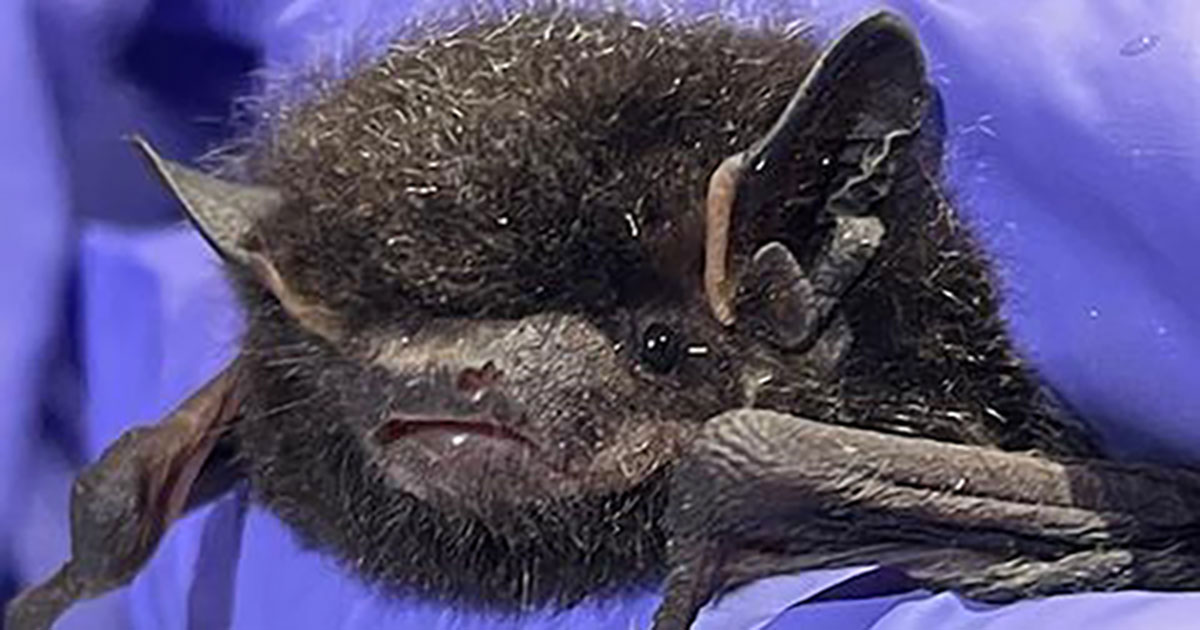
- Details
By AILEEN KEMME, MDNR

Jutting out into Lake Superior is the Keweenaw Peninsula, home to Michigan’s Copper Country.
This is where the earliest known metalworking in North America originated, with objects crafted by Indigenous peoples from Keweenaw copper becoming so prized that they have been discovered in archaeological sites throughout North America.
European settlers also established mining operations in the same region and made Michigan into the world’s leading copper producer by the early 20th century.
While virtually all the mining operations in the area have shuttered since then, the mines are not empty. The Keweenaw region is home to seven of Michigan’s nine bat species, with many of the bats calling the abandoned mines home.
Three of the Keweenaw’s bat species migrate south for the winter, with some, like the hoary bat, traveling as far as Central America before returning to their spring and summertime breeding grounds in North America.
The remaining four species spend their winters hibernating deep within caves and abandoned mine shafts throughout the region. Approximately 90% of Michigan’s hibernating bats overwinter in the Upper Peninsula, with these hibernation sites — called hibernacula — housing anywhere from a few individuals to tens of thousands.
While their erratic flight patterns and nocturnal behavior cause some people to fear them, bats play a vital role in Michigan’s ecosystem and economy.
A single bat can consume thousands of insects in one night, including disease-carrying mosquitoes and crop-damaging pests.
By naturally controlling insect populations, bats reduce the need for pesticides, with some studies estimating they save U.S. farmers more than $3 billion per year.
But Michigan’s ecologically and economically important bat populations are facing serious challenges, including habitat loss and becoming infected with white-nose syndrome.
White-nose syndrome, a deadly fungal disease, has eliminated roughly 90% of the state’s bats. Primarily affecting them while hibernating, the disease causes infected bats to awaken prematurely and rapidly deplete their fat reserves before they ultimately starve to death.
Entire colonies can be lost within a few years because the fungus spreads from cave to cave and from bat to bat through social grooming and close contact.
In response to the rapid decline of Michigan’s bat population, the Keweenaw Bay Indian Community organized a collaborative research effort known as the Bat Blitz in 2024.
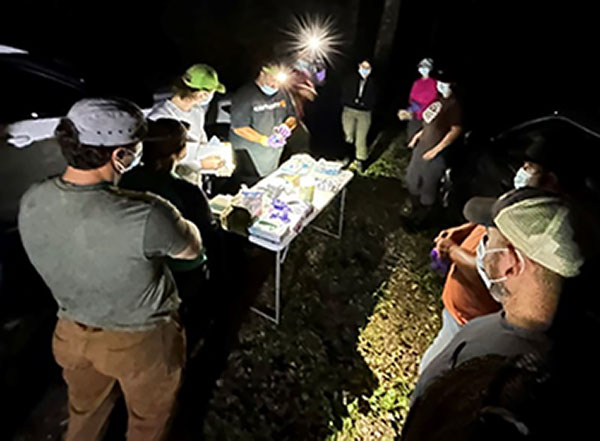
Made possible through federal funding from the Bureau of Indian Affairs and the U.S. Fish and Wildlife Service, the goal of the Bat Blitz was simple: to build skills for bat conservation entities by training together and sharing expertise across state, federal and tribal agencies.
Over the course of three nights, biologists from the Keweenaw Bay Indian Community’s Natural Resource Department were joined by partners from the Sault Ste. Marie Tribe of Chippewa Indians, the Little Traverse Bay Bands of Odawa Indians, the Pokagon Band of Potawatomi, the Michigan Department of Natural Resources and the U.S. Fish and Wildlife Service.
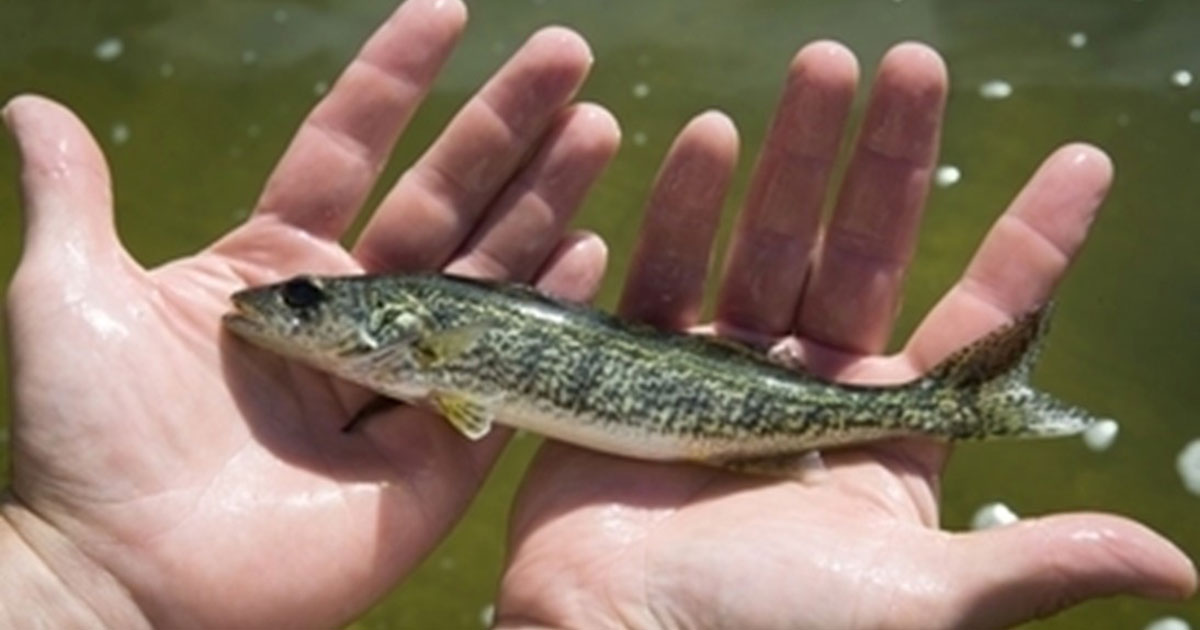
- Details
MDNR Report

This past fall, the Michigan DNR worked hard to stock fish in waters across Michigan — fish that will provide angling opportunities in seasons to come. The fall 2025 effort saw DNR crews stock seven different species at 76 locations throughout the state: 648,557 fish, weighing in at a total of 8.6 tons.
“This was another exceptional fall fish stocking season, enhancing fishing opportunities throughout Michigan,” said DNR fish production manager Aaron Switzer. “Combined with successful spring and summer stocking efforts, the 2025 total reached nearly 19.5 million fish stocked in Michigan’s waters.”
The number and type of fish stocked vary by hatchery, as each facility’s ability to rear fish differs due to water supply and temperature. In Michigan, there are six state and three cooperative fish hatcheries that work together to produce the species, strains and sizes of fish needed by fisheries managers. These fish must then be delivered at specific times and locations for stocking to ensure that they thrive.
In general, fish are reared in Michigan’s state fish hatcheries anywhere from one month to 1.5 years before they are stocked. Most fish in Michigan are stocked in the spring, but some fish are stocked in the fall because they require less time and fewer resources to rear in hatcheries. Fall-stocked fish also may adjust better to new environments as they are younger and more adaptable to change.
Seven species were stocked this fall: Atlantic salmon, brook trout, brown trout, lake trout, rainbow trout (Eagle Lake and steelhead strains), walleye and muskellunge.
- Marquette State Fish Hatchery (near Marquette) stocked 27,915 fall fingerling and 250 adult brook trout that weighed a combined 3,022 pounds. These fish were stocked at a total of 27 locations in the Upper Peninsula.
- Oden State Fish Hatchery (near Petoskey) stocked 140,366 fall fingerling rainbow trout that combined weighed 7,508 pounds and were stocked at four locations in the Upper and Lower peninsulas.
- Thompson State Fish Hatchery (near Manistique) stocked 3,008 Great Lakes strain muskellunge that weighed 304 pounds in Lake Hudson and Thornapple Lake. Thompson also stocked 329,085 fall fingerling steelhead weighing 2,413 total pounds in six locations.
- Wolf Lake State Fish Hatchery (west of Kalamazoo) stocked 64,532 fall fingerling steelhead weighing a combined 917 pounds in Crystal Lake.
- Harrietta State Fish Hatchery (near Cadillac) stocked 17,548 fall fingerling brown trout and 24,520 fall fingerling rainbow trout. These fish were stocked in four locations with a combined weight of 1,573 pounds.
DNR fisheries management units also stocked fall fingerling walleye this year. - Southern Lake Michigan Management Unit stocked 33,580 Muskegon strain fall fingerlings weighing 1,373 total pounds in 20 locations.
- Central Lake Michigan Management Unit stocked 2,507 Muskegon strain fall fingerlings weighing 160 pounds total in three locations.
- Northern Lake Michigan Management Unit stocked Little Bay de Noc with 5,211 fall fingerlings (Little Bay de Noc strain) weighing a combined 88 pounds in five locations; 2,815 of these walleye fingerlings were raised in a co-op partner pond tended by the Bay De Noc Great Lakes Sportfishermen.
The DNR welcomes visitors to its state fish hatcheries and interpretive centers to see the fish rearing process and to learn about Michigan’s waters. For more information or to plan your trip, visit Michigan.gov/Hatcheries.
To find out if any fish were stocked in your favorite fishing spots, visit the DNR’s fish stocking database at michigandnr.com/fishstock/.
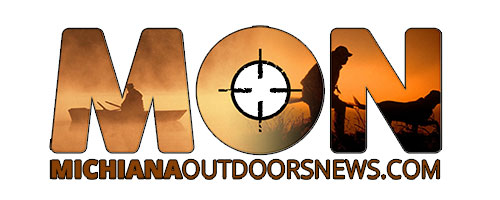
- Details
MDNR Report
Looking for a summer job?
Join the Michigan DNR’s dynamic team of 1,300 summer park workers and spend your season in Michigan state parks, boating facilities and other outdoor spaces!
You'll play a vital role in park operations, directly contributing to the visitor experience by welcoming guests, registering campers and ensuring the upkeep of our facilities through essential tasks like cleaning and grounds maintenance.
Beyond earning a starting hourly rate of $15.50, you'll connect with nature, meet incredible people and gain valuable skills in customer service, teamwork and outdoor recreation.
Apply now! It takes less than five minutes to complete the online interest form.
Express interest in a summer park worker position!
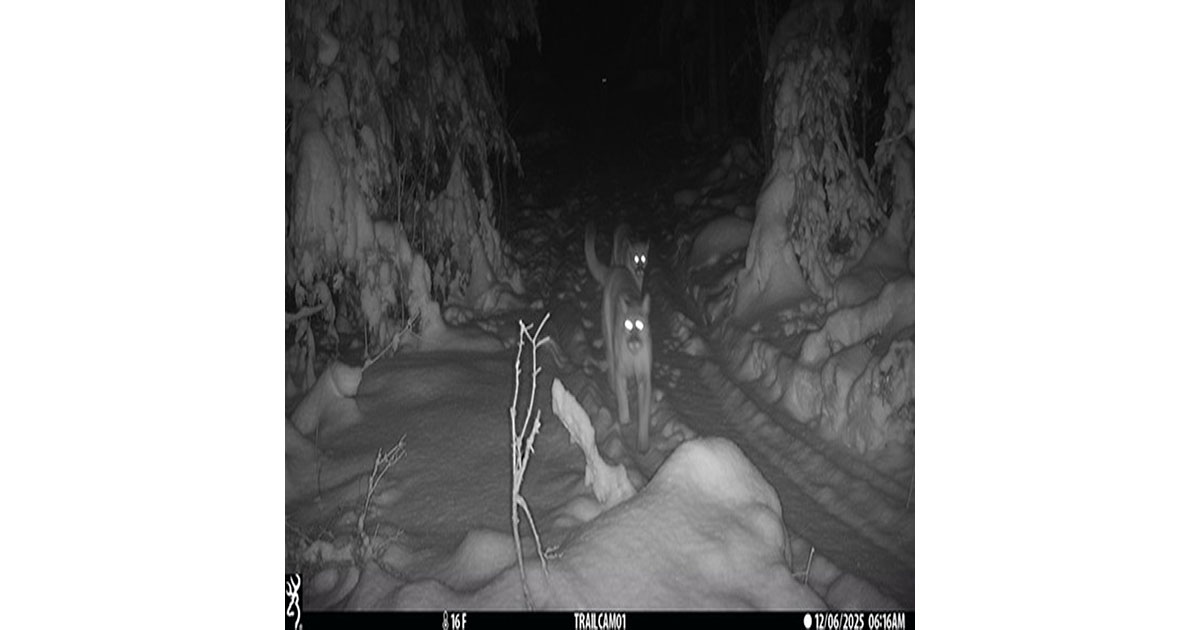
- Details
MDNR Report

Nine months after two cougar kittens were documented in the Upper Peninsula, a new trail camera photo indicates the elusive animals are still alive and living with their mother.
The Michigan DNR verified the Dec. 6 photo of an adult cougar being followed by two kittens down a snowy trail in central Ontonagon County. The last time the kittens were documented – in early March – they were only about two months old and their mother was nowhere in sight, raising concerns about the kittens’ survival.
But the newly verified photo shows an adult cougar with two juvenile cougars that appear to be about a year old, according to Brian Roell, the DNR’s large carnivore specialist.
Michigan is home to very few cougars and genetic testing has confirmed the existence of only adult males. The new photo suggests one of the first instances of cougar reproduction to take place outside the cougars’ core area in the Western states.
“This is a historic confirmation for Michigan since it is the first time in over 100 years that verified cougar reproduction has occurred east of the Mississippi River and possible even east of the Missouri River,” Roell said.
A private landowner sent the trail camera photo of the cougars to the DNR on Sunday, Dec. 14. Roell verified the site of the photo Monday and the DNR’s cougar team confirmed the photo Tuesday by enhancing the nighttime image to verify the existence of the three cougars. The sex of the kittens is unknown.
Cougar kittens, or cubs, generally stay with their mother for about two years before venturing out on their own.
“The kittens’ chances of survival are actually pretty high because just like bears, cougars invest a lot of their energy into their young,” Roell said. “So these kittens will stay with their mom through this winter and possibly even into next winter. They already have a leg up, seeing as how they’ve been with her for a year now.”
Roell is surprised the cougar kittens weren’t documented from any public or private trail cameras since March. The DNR operates more than 1,300 trail cameras in the U.P. to survey wildlife abundance.
“The interesting thing is, where were they for nine months?” Roell says. “That’s a mystery.”
Native to Michigan, cougars were essentially hunted out of the state by the early 1900s. Since 2008, the DNR has confirmed about 168 cougar sightings, all in the U.P., although most of those sightings are of the same animal being reported by multiple sources, Roell said.
Cougar sightings have increased each year since 2019, Roell added, but the number of trail cameras has also increased. Cougar sightings on DNR-operated cameras accounted for more than 25% of the verified cougar sightings in 2024. Visit the DNR’s cougar dashboard and cougar photo page for more information.
In addition to the cougar kittens in Michigan, there have been more cougars reported in other areas, including Nebraska. However, cougars need vast territories because they are solitary ambush predators that rely on deer and other large prey, which leads to low population densities. Even states with the largest cougar populations generally have just a few thousand of the animals.
“This isn’t an animal that is ever going to become very numerous,” Roell said. “They’re going to remain rare on the landscape regardless of whatever happens with them here in Michigan.”
Cougars are on the list of endangered mammals in Michigan, meaning it’s illegal to hunt or harass them, which includes trying to locate their den on public or private property.
“Too much human pressure can also trigger the female cougar to abandon her cubs,” Roell said. “As with all wild animals, we’re asking the public to respect their habitat and allow them to live naturally in their home.”


